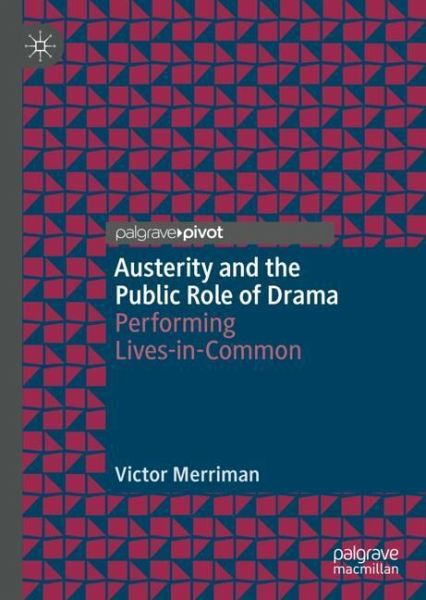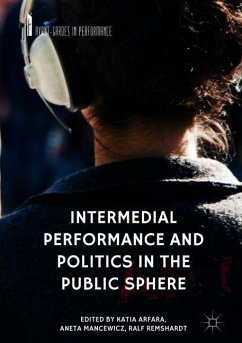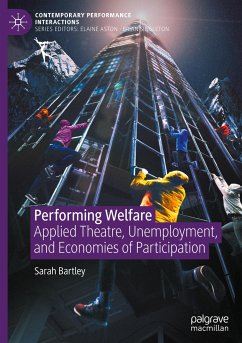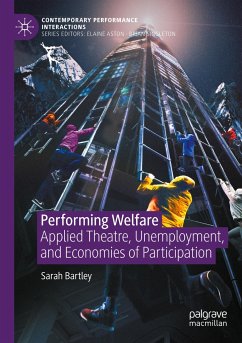
Austerity and the Public Role of Drama
Performing Lives-in-Common

PAYBACK Punkte
19 °P sammeln!
This book asks what, if any, public role drama might play under Project Austerity - an intensification phase of contemporary liberal political economy. It investigates the erosion of public life in liberal democracies, and critiques the attention economy of deficit culture, by which austerity erodes life-in-common in favour of narcissistic performances of life-in-public. It argues for a social order committed to human flourishing and deliberative democracy, as a counterweight to the political economy of austerity. It demonstrates, using examples from England, Ireland, Italy, and the USA, that ...
This book asks what, if any, public role drama might play under Project Austerity - an intensification phase of contemporary liberal political economy. It investigates the erosion of public life in liberal democracies, and critiques the attention economy of deficit culture, by which austerity erodes life-in-common in favour of narcissistic performances of life-in-public. It argues for a social order committed to human flourishing and deliberative democracy, as a counterweight to the political economy of austerity. It demonstrates, using examples from England, Ireland, Italy, and the USA, that drama and the academy pursue shared humane concerns; the one, a critical art form, the other, a social enabler of critical thought and progressive ideas. A need for dialogue with emergent forms of collective consciousness, new democratic practices and institutions, shapes a manifesto for critical performance, which invites universities and cultural workers to join other social actors in imaginingand enabling ethical lives-in-common.














